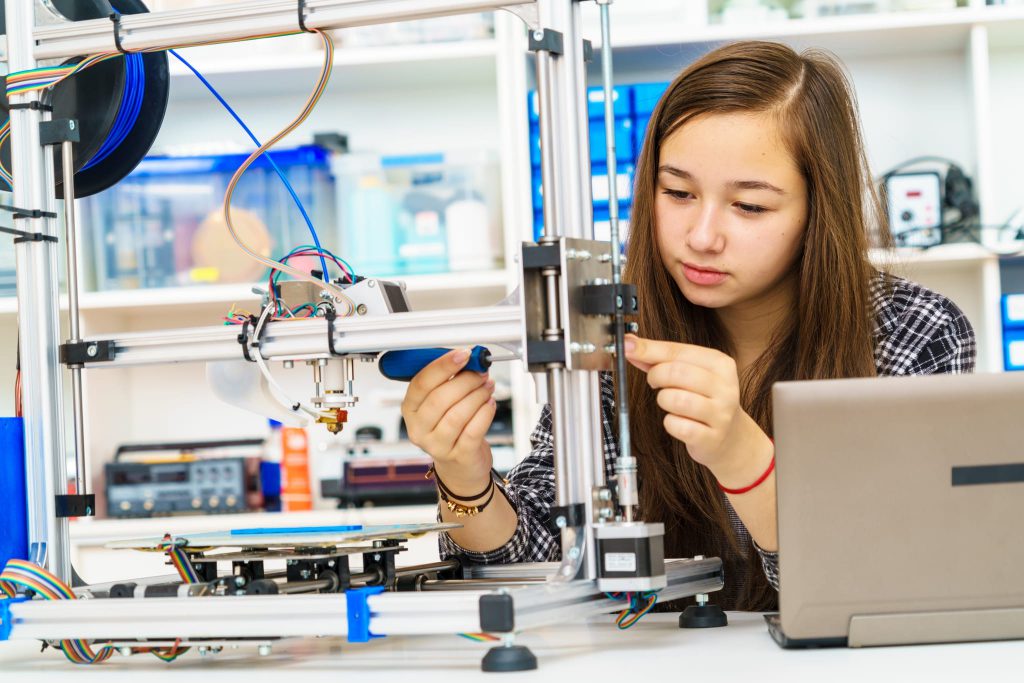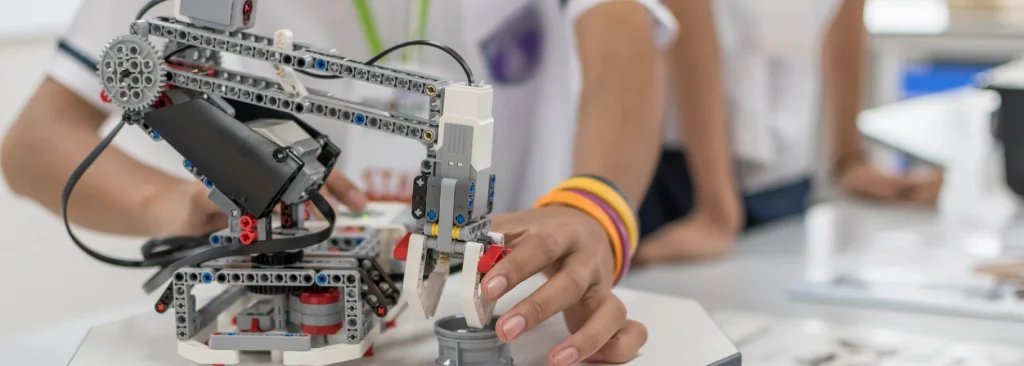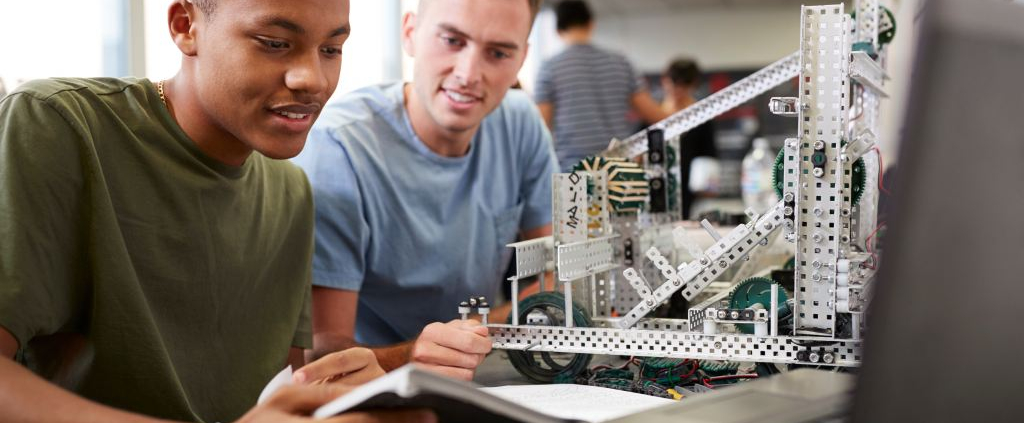As summer break approaches, it’s important to plan your time productively and continue learning to avoid summer brain drain. Admissions committees are interested in how you spend your time outside of school — even during the summer — which is why supplemental learning is such an important way to continue developing your academic interests.
If you have a passion for STEM, stepping outside the classroom curriculum and diving into STEM resources can deepen your understanding in ways traditional learning sometimes can’t — not to mention, it makes you a more competitive STEM applicant. This curated list of books, periodicals, podcasts, and documentaries is designed to introduce you to new ideas and perspectives, help you develop critical thinking skills, broaden your vocabulary, and perhaps even discover the specific area of STEM that truly captivates you.
Books
Science
Letters to a Young Scientist by Edwin O. Wilson: In this inspiring collection of personal reflections, advice, and encouragement for aspiring scientists from one of America’s foremost biologists of the 20th century, Wilson shares both practical guidance and philosophical musings on what it means to live a life devoted to scientific discovery. He emphasizes that deep curiosity and passion are more important than mathematical genius and encourages students to pursue what truly fascinates them. He writes that success in science often comes from an intense focus on a single question or field, drawing heavily from his own obsession with ants.
The Poisoner’s Handbook: Murder and the Birth of Forensic Medicine in Jazz Age New York by Deborah Blum: For you CSI fans, check out this thoroughly researched page-turner about the origins of forensic toxicology in the U.S. The Poisoner’s Handbook follows the work of Dr. Charles Norris, New York City’s first scientifically trained medical examiner, and his chief toxicologist, Alexander Gettler, who together revolutionized the way suspicious deaths were investigated. Each chapter focuses on a specific poison, detailing how it was used in crimes and how Norris and Gettler developed new scientific methods to detect these toxins in the human body.
Napoleon’s Buttons: How 17 Molecules Changed History by Penny Le Couteur and Jay Burreson: There’s a theory that Napoleon’s army was fatally weakened during the Russian campaign because the tin buttons on their uniforms disintegrated in the extreme cold. Though this is mostly in the realm of legend, it highlights the book’s central theme: Small chemical compounds can have outsized effects on world events. Le Couteur and Burreson explore how 17 molecules, including spices, drugs, explosives, and textile fibers, have profoundly influenced the course of human history. Chock full of interesting facts, it’s a compelling read for the layperson and chemist alike.
The Light Eaters: How the Unseen World of Plant Intelligence Offers a New Understanding of Life on Earth by Zoë Schlanger: You will never look at plants the same way after reading this fascinating book that explores the emerging science of plant intelligence. Schlanger investigates groundbreaking scientific research that suggests plants possess forms of memory, learning, communication, problem solving, and even decision making — traits once thought to be exclusive to animals and humans. Schlanger balances science journalism with philosophical inquiry through stories from scientists, ecologists, and philosophers who are reshaping how we define sentience, life, and intelligence.
Breath from Salt: A Deadly Genetic Disease, a New Era in Science, and the Patients and Families Who Changed Medicine Forever by Bijal P. Trivedi: For anyone interested in entering a health-related career, this moving story about the battle against cystic fibrosis is a must read. Trivedi follows the scientific breakthroughs, as well as the vital role of patient advocacy organizations in funding targeted research, that turned a fatal diagnosis into a manageable condition for many. Trivedi gives a human face to this disease through the personal stories of the families impacted and shows how cystic fibrosis became a model for how to combat other rare diseases.
All in Her Head: The Truth and Lies Early Medicine Taught Us About Women’s Bodies and Why It Matters Today by Elizabeth Comen, M.D.: Dr. Comen investigates how male-dominated societies and institutions throughout human history have distorted our understanding of women’s bodies and health. The phrase “all in her head” reflects the long-standing pattern of dismissing women’s symptoms as emotional, exaggerated, or imaginary. Even today, misdiagnosis of a variety of conditions in women and disparities in pain management demonstrate how these historical injustices still manifest in modern healthcare systems.
What If?: Serious Scientific Answers to Absurd Hypothetical Questions by Randall Munroe: A former NASA engineer and creator of the popular webcomic xkcd, Munroe applies his scientific expertise and humor to explore wildly hypothetical scenarios, for example, “What if you tried to hit a baseball pitched at 90% the speed of light?” Munroe ensures that even the most outlandish questions receive thorough and accurate explanations, leading to educational insights as well as hilarious conclusions. Every prospective scientist and engineer will be entertained and inspired by What If?
Technology
Under a White Sky: The Nature of the Future by Elizabeth Kolbert: From the award-winning author of the The Sixth Extinction, this book explores examples of how ever more extreme technological solutions are needed to fix the environmental problems we have caused. From the management and mismanagement of our waterways, to using gene editing tools to combat species loss, to ambitious climate engineering projects, Kolbert highlights the unintended consequences of our actions and asks the reader to reflect upon the ethics and sustainability of our environmental interventions. A sobering but important read for these times.
The Alignment Problem: Machine Learning and Human Values by Brian Christian: Published in 2020 before ChatGPT burst onto the scene, The Alignment Problem provides a clear history of the evolution of artificial intelligence and highlights the essential problem with it — how to ensure that we use it in ways that align with human values. Christian emphasizes how the shift from explicitly programmed rules to data-driven learning has made systems more powerful but also more opaque and difficult to control. As AI has begun to infiltrate every aspect of daily life, reflecting upon the “alignment problem” is critically important.
Engineering
Skunk Works: A Personal Memoir of My Years at Lockheed by Ben R. Rich and Leo Janos: As head of Lockheed’s Skunk Works from 1975–1991, Ben Rich and his legendary research and development team developed cutting-edge military aircraft, including the F-117 Nighthawk with stealth technology. Rich describes the conceptual, engineering, and political hurdles the team faced in pioneering radar-evading aircraft that would reshape modern warfare.
Mathematics
Zero: The Biography of a Dangerous Idea by Charles Seife: Most of us these days don’t think too much about the concept of “zero,” but it has a fascinating history, from how it once ran afoul of philosophical and religious beliefs in the West, to its importance in the advancement of mathematics, enabling developments in algebra, calculus, physics, and computer science. The book highlights how this seemingly simple concept has shaped human understanding of the universe, revealing both the power and peril of embracing the idea of nothingness.
Periodicals
Outside reading isn’t just limited to books. Check out these periodicals to learn about the latest news, innovations, and discoveries in the world of STEM:
- Science Journal for Kids and Teens: This journal offers scientific articles written specifically for students and approved by scientists.
- The Scientific Teen: This worldwide STEM publication is produced and written by students for students.
- Popular Science: This magazine provides accessible and engaging articles on a wide range of scientific and technological topics.
- Scientific American: Known for its in-depth articles on a variety of scientific topics, this magazine is suitable for advanced high school students interested in detailed scientific discussions.
- Discover: This publication covers a broad spectrum of scientific fields and is known for its engaging and informative articles.
- Science News: This weekly magazine offers concise coverage of the latest developments in science, technology, health, and the environment.
- Science World (Scholastic): Aimed at grades 6-10, this magazine covers a wide range of scientific topics with engaging articles, photos, and activities.
- Pi in the Sky: Published by the Pacific Institute for the Mathematical Sciences (PIMS), this magazine is aimed at high school students and teachers, providing a cultural context for mathematics and exploring different perspectives on curriculum topics.
Podcasts
Give these fun, STEM-related podcasts a listen while you’re out and about this summer:
- StarTalk: Hosted by astrophysicist Neil deGrasse Tyson (often with co-hosts like Bill Nye), this podcast blends science with pop culture, making learning about astronomy, physics, and the universe entertaining and relatable.
- The Naked Scientists: A production from Cambridge University, this podcast aims to make science accessible to everyone.
- Unprofessional Engineering: This podcast offers a casual and friendly discussion about how STEM research and applications have created everyday items and technologies, breaking down complex engineering concepts in an easy-to-understand way.
- Ologies: Hosted by Alie Ward, this podcast dives into different “ologies” or fields of study (like primatology, volcanology, etc.) with in-depth and often funny interviews with experts.
- Science Vs: Hosted by Wendy Zukerman, this podcast offers an informal and entertaining discussion of some of the strangest and most interesting facts in scientific history.
Documentaries
Believe it or not, watching television can also count as supplemental learning. These STEM-related documentaries are entertaining as well as educational.
- Our Planet: This Netflix documentary series explores the beauty of our planet and the impact of climate change on its inhabitants.
- Dream Big: Engineering Our World: This documentary showcases the amazing feats of engineering around the world and aims to inspire the next generation of engineers.
- Science Fair: This National Geographic documentary follows nine high school students from around the world as they prepare for and compete in the International Science and Engineering Fair (ISEF).
- My Octopus Teacher: This beautifully filmed Netflix documentary follows a diver’s unusual friendship with an octopus.
- Spaceship Earth: This documentary tells the fascinating true story of Biosphere 2, a group of scientists and researchers who recreated Earth’s biosphere in a closed ecological system and attempted to live in it for two years.
- Picture a Scientist: This important documentary chronicles the experiences of women scientists, highlighting the challenges they face due to gender bias and discrimination in STEM fields.
Personalize Your College Prep with IvyWise
If you’re interested in expanding your STEM education, there are numerous resources we haven’t listed here that might be a great fit for your interests. The IvyWise team offers customized lists of resources to students enrolled in our programs to help them build a strong academic profile for college admissions. Learn more about our college admissions counseling services and how we can help you achieve your academic goals.
Contact Us




